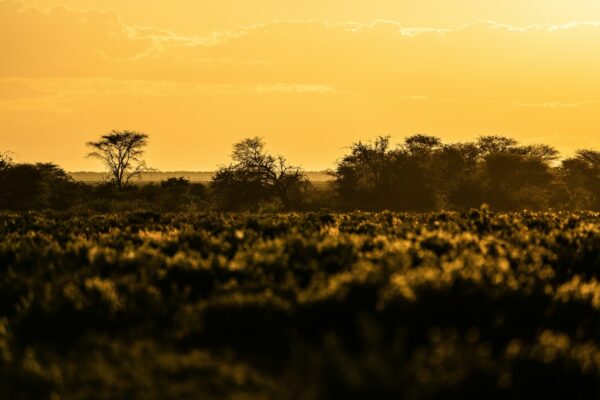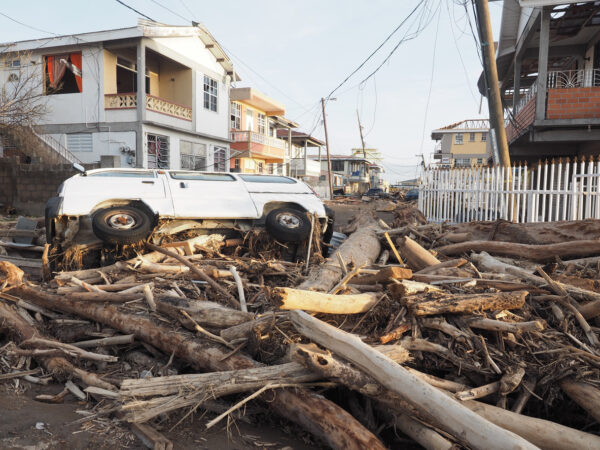Climate impacts and risks
Share

We research how climate impacts – from storms and droughts to fires and water scarcity – affect peoples and ecosystems around the world, and what could happen at higher levels of warming.
Our impacts work is used as evidence in climate negotiations, in climate litigation cases and to inform policymakers of the risks associated with delayed action.
Our expertise includes:
- climate projections and associated impacts
- extreme events
- slow-onset impacts
- land use and land use change
- socio-economic and health impacts
- science communication
Our experts

Dr Melania Guerra
Head of Climate Science and Impacts Team

Dr Fahad Saeed
Senior Climate Scientist

Dr Rosanne Martyr
Senior Scientist, Group Lead Adaptation and Loss and Damage

Dr Anne Zimmer
Group Lead: Socio-economic impacts and financial implications of climate change
Projects

Climate change risk analysis to support the Network for Greening the Financial System
The Network of Central Banks and Supervisors for Greening the Financial System (NGFS) is a voluntary group of banks and supervisors that aim to share best practices on climate risk management in the financial sector and to mobilise mainstream finance to promote the transition to a sustainable economy. Climate Analytics contributes to this work by providing estimates of risk from climate change impacts using future climate projections and makes them publicly available through the Climate Impact Explorer online tool.

Climate and Earth system responses to climate neutrality and net negative emissions
The RESCUE (Response of the Earth System to overshoot, Climate neutrality and negative Emissions) project aims to improve our knowledge and understanding of the climate and Earth system responses to climate neutrality and net negative emissions.

Climate ambition support
Supporting climate-vulnerable countries in strengthening their roles and voices in international climate negotiations.

Empowering island communities to reduce future flooding impacts (FloodAdapTT)
This project aims to empower island communities to assess what risks they face from flooding under different climate scenarios and help them determine which adaptation strategies will work best for their circumstances.

Understanding the climate impacts associated with temporarily overshooting 1.5°C
This project is working to develop the science around what the climate impacts of temporarily overshooting 1.5°C would mean for our climate.

Constraining uncertainty of multi-decadal climate projections
The EU-funded project “Constraining uncertainty of multi-decadal climate projections” (CONSTRAIN) will address crucial knowledge gaps in climate science to significantly improve our understanding of how natural and human factors affect multi-decadal regional climate change. The project will deliver improved climate projections of policy relevance for the next 20 to 50 years, contributing to European research on fundamental climate system processes and climate variability.

ISIpedia: the open climate-impacts encyclopedia
ISIpedia aims at facilitating the co-production and knowledge transfer of climate impact information. The end-product being a user-friendly, freely accessible online encyclopaedia for consistent impacts projections across sectors.

Risks of water and food insecurity in the Horn of Africa Drylands
The Horizon Europe funded project, Down2Earth, looks at future risks from water scarcity and food insecurity in vulnerable countries in the Horn of Africa Drylands and supports community-centered climate adaptation and resilience.

Climate risk, adaptation and insurance in the Caribbean
The Climate Risk Adaptation and Insurance in the Caribbean (CRAIC) project, led by Munich Climate Insurance Initiative, assists Caribbean countries in their efforts to increase social resilience and adapt to climate change by incorporating climate risk insurance within a broader framework of disaster risk reduction strategies.

Climate vulnerability monitor
The Climate Vulnerability Monitor, funded by the UN and spearheaded by the Climate Vulnerability Forum, aims to develop a global report and tool exploring climate change impacts, with a particular focus on the world’s most vulnerable countries. Climate Analytics leads the science consortium for this project.

Climate impacts on socioeconomic development
SLICE is investigating Short and Long-Term Impacts of Climate Extremes and aims to develop a systematic understanding of the channels through which climate extremes impact socio-economic development all the way from the household to the macroeconomic level. This will help developing effective strategies for long-term economic development under climate change.

IMPACT

Assessing climate change costs in Europe

Assessing the differences in climate impacts between 1.5°C and 2°C

Science-based national adaptation planning in Sub-Saharan Africa

Projet d’Appui Scientifique aux processus de Plans Nationaux d’Adaptation
Ce projet soutient les Pays les Moins Avancés (PMA) de l’Afrique subsaharienne dans leurs processus de formulation de Plans Nationaux d’Adaptation (PNA). Il se déroule au Bénin, au Sénégal et au Burkina Faso, où les partenaires principaux sont les ministères nationaux chargés du changement climatique.

How do socioeconomic barriers inform limits to adaptation?
The EmBARK project investigates possible trajectories of socio-economic transformation processes and analyse their relevance as potential barriers to adaptation to climate change.

Breaking down siloed decision making on climate for the EU 2020 Strategy

Turn down the heat report series
From 2012 to 2014 we authored a series of reports for the World Bank looking at the impacts of climate change in a 4°C world with an emphasis on the impacts for the most vulnerable.

High-Level support for LDCs and SIDS on climate change
The HLSM High-Level Support Mechanism for LDC and SIDS on Climate Change project creates a support mechanism for high-level political representatives and their advisors from LDCs and SIDS that is demand-driven, responsive to ongoing needs and firmly rooted in the respective regions.

SURVIVE
SURVIVE, a joint project between Climate Analytics and the Potsdam Institute for Climate Impact Research (PIK) supports Small Island Developing States (SIDS) and Least Developed Countries (LDCs) in the international climate change negotiations.

PREVENT
PREVENT is built around a team of experienced climate scientists and analysts, whose objective is to provide science, policy, strategic and analytical support for delegations of the Least Developed Countries and Small Island Developing States.































